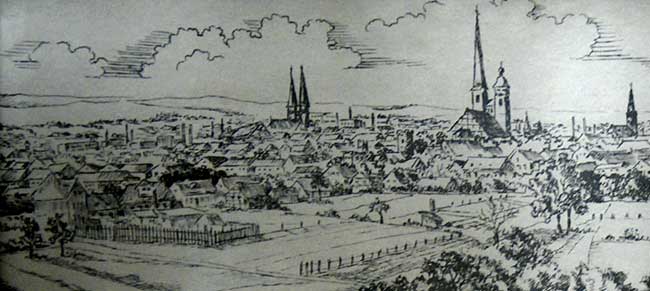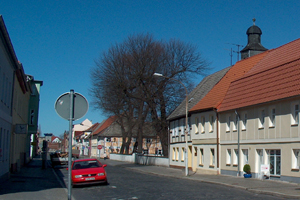Due to theological reasons the Huguenots had a keen interest in nature and plants. From their French homeland they brought with them botanical knowledge and vegetables still unknown in Germany. The French grew peas, beans, asparagus, coliflower and potherbs in their gardens. Also the commercial cultivation of tobacco was new for the area.
The influx of Huguenots and immigrants from Palatinate, Swabia and Switzerland, and their hard work and extensive knowledge brought economic improvements to Burg after the Thirty Years' War. The city was rebuilt and expanded. The surrounding land was turned into productive farm and horticultural land. The immigrants were a major factor in the establishment of vegetable and fruit cultivation in the region and that new production techniques and trades were developed.

city of Burg around 1900, scetch by K.H. Schirmer

Franzosenstraße in 2007
The original Franzosenstraße in downtown Burg as part of the former French colony is testimony of the city's history.
Previous: A difficult start